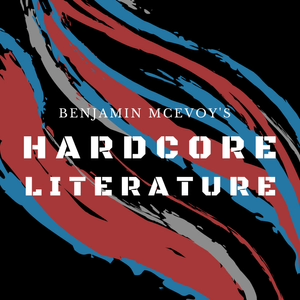
Episode 24: The Unseen World by Liz Moore
07/27/16 • 51 min

The Unseen World begins in the 1980s, in Boston, before the Internet, before e-mail or smart phones, when computers were large and clunky and not yet ubiquitous, and where David Sibelius, computer scientist, is raising his daughter Ada alone. Ada's childhood is an atypical one: she spends her time with David and his colleagues, not going to school, learning in David's artificial intelligence lab. So when, shortly after Ada turns 12, David is diagnosed with Alzheimer's, Ada is utterly lost. It turns out she is even more lost than she knows: everything David has told her, his friends, and his colleagues about his past, including his name, is a lie. Ada's life becomes a quest for the truth, as she seeks to decode the mystery her father has left her, and to understand what can be invented and still be the truth.
Liz Moore answers host Cyd Oppenheimer's questions about all the ways this book is different from her previous novel, Heft, in what it chooses to divulge and how it ends; talks about her writing process; and reveals that originally David had a different secret past (but won't tell us what it was!).
Guest readers Alice Baumgartner and Sophfronia Scott join Oppenheimer to discuss ghosts and grief, betrayals and bequests, and inheritance and invention.
Available at:
Amazon
Barnes & Noble
IndieBound

The Unseen World begins in the 1980s, in Boston, before the Internet, before e-mail or smart phones, when computers were large and clunky and not yet ubiquitous, and where David Sibelius, computer scientist, is raising his daughter Ada alone. Ada's childhood is an atypical one: she spends her time with David and his colleagues, not going to school, learning in David's artificial intelligence lab. So when, shortly after Ada turns 12, David is diagnosed with Alzheimer's, Ada is utterly lost. It turns out she is even more lost than she knows: everything David has told her, his friends, and his colleagues about his past, including his name, is a lie. Ada's life becomes a quest for the truth, as she seeks to decode the mystery her father has left her, and to understand what can be invented and still be the truth.
Liz Moore answers host Cyd Oppenheimer's questions about all the ways this book is different from her previous novel, Heft, in what it chooses to divulge and how it ends; talks about her writing process; and reveals that originally David had a different secret past (but won't tell us what it was!).
Guest readers Alice Baumgartner and Sophfronia Scott join Oppenheimer to discuss ghosts and grief, betrayals and bequests, and inheritance and invention.
Available at:
Amazon
Barnes & Noble
IndieBound
Previous Episode

Episode 23: Surprise Me by Deena Goldstone
"Surprise me." These words, from whence the novel takes its title, are what teacher and washed-up novelist Daniel Jablonski tells college senior Isabelle Rothman when she gives him her writing. She doesn't find his words helpful. Their relationship begins as fractious, contentious, and barbed, but it proves to be enduring, girded by a slow-emerging mutual respect. In the years following Isabelle's graduation, the two remain connected by a correspondence that proves important to them both. Through its exploration of their connection, Surprise Me is a meditation on writing, mentorship, and what it is to tell someone else's stories.
Deena Goldstone talks about what surprised her in the writing of this book ("Daniel's son was a revelation to me"), about the morality of mining other people's lives ("Almost everything I write has some germ in something that's happened to me or someone I know . . . but the entity that you create is a thing in and of itself"), and whether it's possible to teach someone to write ("mentorship is [ultimately] about helping someone find their own voice").
Guest readers Emily Moore and Matt Higbee join host Cyd Oppenheimer to discuss gender dynamics, the tension between writing and motherhood, and stalkers and figure skaters.
Available at:
Next Episode

Episode 25: Good Morning, Midnight by Lily Brooks-Dalton
In Good Morning, Midnight, the world has gone silent. No sound filters through to Augustine, a research scientist who refused to obey the evacuation order given to his arctic research center; likewise, Sully and her four fellow astronauts hear nothing from Earth on their journey back from Jupiter. The world was there one day and the next day it wasn't; no one knows why. These two characters, one in the farthest reaches of earth, the other in the farthest reaches of space, are forced to confront not just their uncertain futures but also their pasts: what was lost and what willingly relinquished, what was mourned and what regretted, what they aspired to, and the price they paid.
Lily Brooks-Dalton talks about how her job, one winter, at a New England public radio station planted the seed for this novel, about her choice to write what one of our readers termed "the quietest post-apocalyptic book I've ever read" ("Plot and action are not tools that my writerly self reaches for"), and about her decision to end with a cliffhanger ("Coming to a culmination in a place of not knowing is so much of what life is").
Guest readers Tui Sutherland and Brian Slattery join host Cyd Oppenheimer to discuss isolation, loneliness, grief, and hope, and crack each other up playing a game of "Which Astronaut Are You?"
Order today!
Available at:'
If you like this episode you’ll love
Episode Comments
Generate a badge
Get a badge for your website that links back to this episode
<a href="https://goodpods.com/podcasts/book-talk-14028/episode-24-the-unseen-world-by-liz-moore-504041"> <img src="https://storage.googleapis.com/goodpods-images-bucket/badges/generic-badge-1.svg" alt="listen to episode 24: the unseen world by liz moore on goodpods" style="width: 225px" /> </a>
Copy






